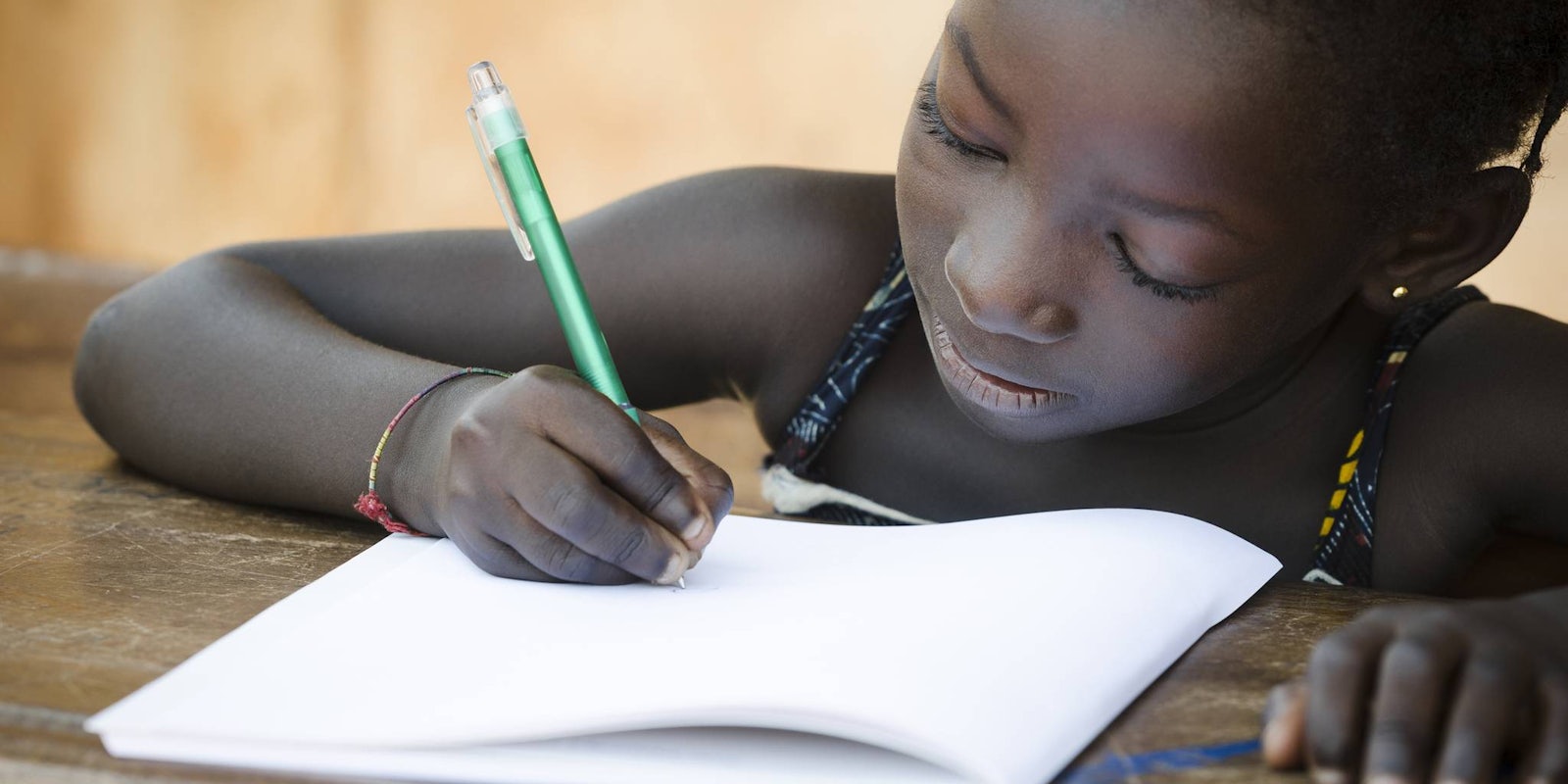If you signed onto Facebook this morning, you may have noticed a prompt asking you to add an International Day of the Girl frame to your profile photo. Oct. 11 marks a day of action for the organization, a “youth-led movement fighting for gender justice and youth rights.” And this year Michelle Obama is adding her voice to the movement.
In an op-ed for CNN, the First Lady wrote about global education initiatives for girls, her own project Let Girls Learn, and the importance of helping girls around the world have access to education. “Unlike so many girls around the world, we have a voice. That’s why, particularly on this International Day of the Girl, I ask that you use yours to help these girls get the education they deserve.”
The movement hopes to address a number of other issues that affect young girls, such as reproductive justice, sex trafficking, and the harmfulness of the gender binary.
Being a girl should not mean special opportunities. It should mean EQUAL opportunities. #DayoftheGirl #InternationalDayoftheGirl pic.twitter.com/NEyEovgtII
— Anisha Seth Bhanot (@AnishaSeth25) October 11, 2016
https://twitter.com/TaraFlynn/status/785733549307539456
Happy #DayoftheGirl! For me, this means keep pushing for #menstrualhygiene and busting taboos #wash #girlpower
— Sreya P (@sreya0429) October 11, 2016
To promote the day, 250 girls the world over are taking over various official jobs, including one 17-year-old girl running the U.N.’s Geneva office. “The takeover is a great statement of girls’ power and their ability to change the world. It also serves as a reminder to governments how millions of girls are held back and denied an equal chance in life just because they are girls,” Anne-Birgitte Albrectsen, CEO of Plan International, told Motto.
According to UNICEF, “an estimated 31 million girls of primary school age and 32 million girls of lower secondary school age were out of school in 2013” due to inadequate hygiene facilities for girls to handle their periods, cultural norms that expect women to stay at home, and violent school environments.
It’s easy enough to tell girls that they can be anything, that they are as strong and smart as men, and to reach for their dreams. But it’s not lack of ambition that’s holding most girls back—it’s institutional and cultural prejudices that ensure girls have less access to education, have less earning potential, and are expected to be the primary housekeepers and child caregivers when they grow up. It’s one thing to believe girls are as deserving of opportunities as boys—it’s another to actively work to tear down the structures that keep that from being the reality.
